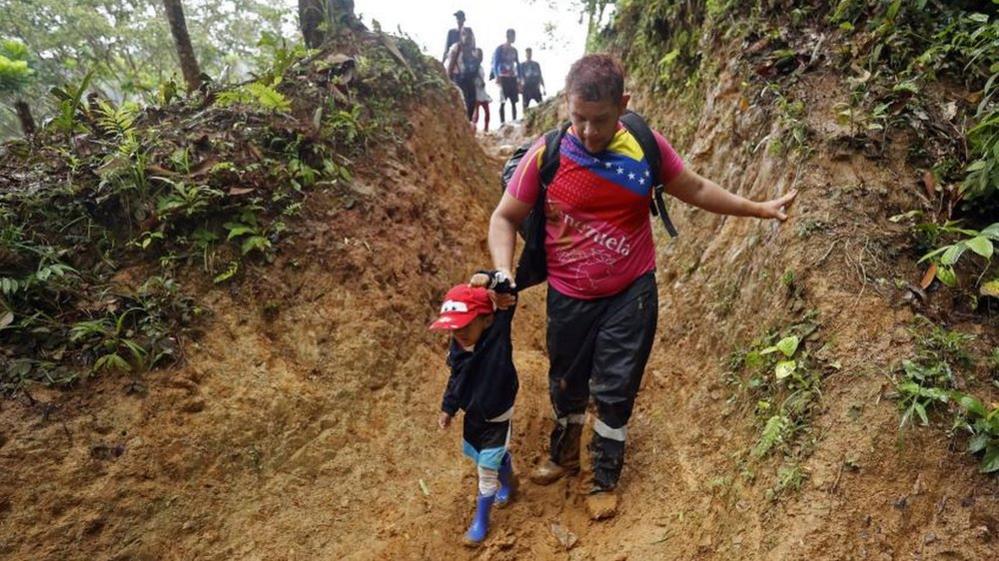Mexico migrant centre fire: 'They didn't deserve to die this way'
- Published
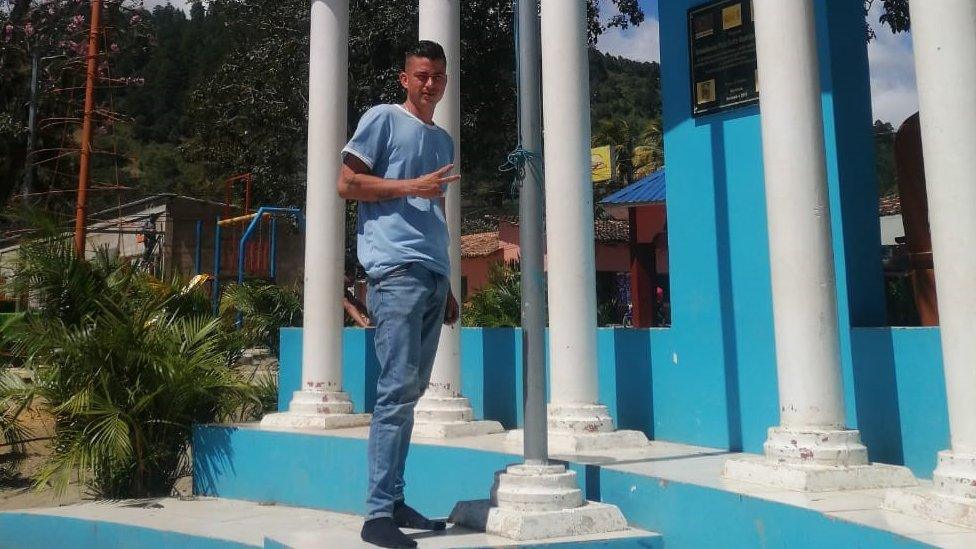
Orlando Maldonado Pérez, 26, is one of those who died in the fire at a migrant centre in Ciudad Juárez
When Orlando José Maldonado Pérez sent his family in Venezuela a message a week ago on Sunday, he was upbeat and full of hope.
The 26-year-old had arrived in Ciudad Juárez, the Mexican city just across the US border from El Paso, Texas, just four days previously.
His dream was to make it to the United States, and now he felt he was close to achieving it. Excited about the prospect, he had sent his mother a voice message saying he could see the border fence.
Orlando was keen to avoid any trouble, his sister Mileyvi told the BBC. His aim was to cross into the US legally to earn a living so he could provide his six-year-old son with a better life.
So mindful was he of his safety that he decided to pool the little money he had left with a couple of fellow Venezuelan migrants, to rent a room rather than stay in a hostel, where he feared there could be "aggro".
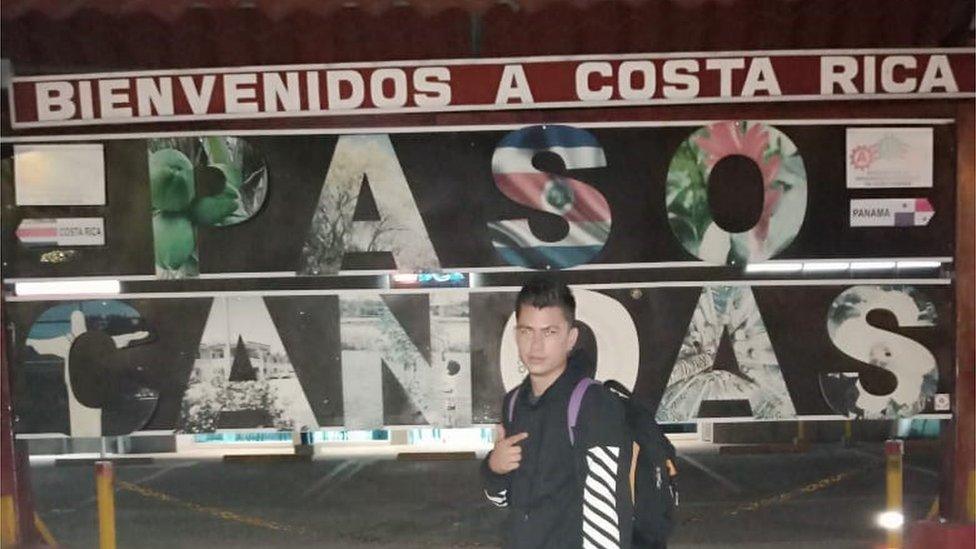
Orlando left Venezuela in October, spent some time in Panama, and from there trekked to the US-Mexico border
When his family read on Tuesday morning that a deadly fire had broken out the previous night in a migrant centre in Ciudad Juárez, they did not worry at first, thinking he was safe in the room he had rented.
It was not until Wednesday morning that other relatives spotted Orlando's name on the list the Mexican government had published of the 68 migrants who had been inside the facility at the time of the fire, and alerted his parents.
The family found out from Orlando's friends that he had been detained by Mexican migration officials on Monday at a street corner in Ciudad Juárez, where he had been selling sweets to be able to continue paying for the room he had rented.
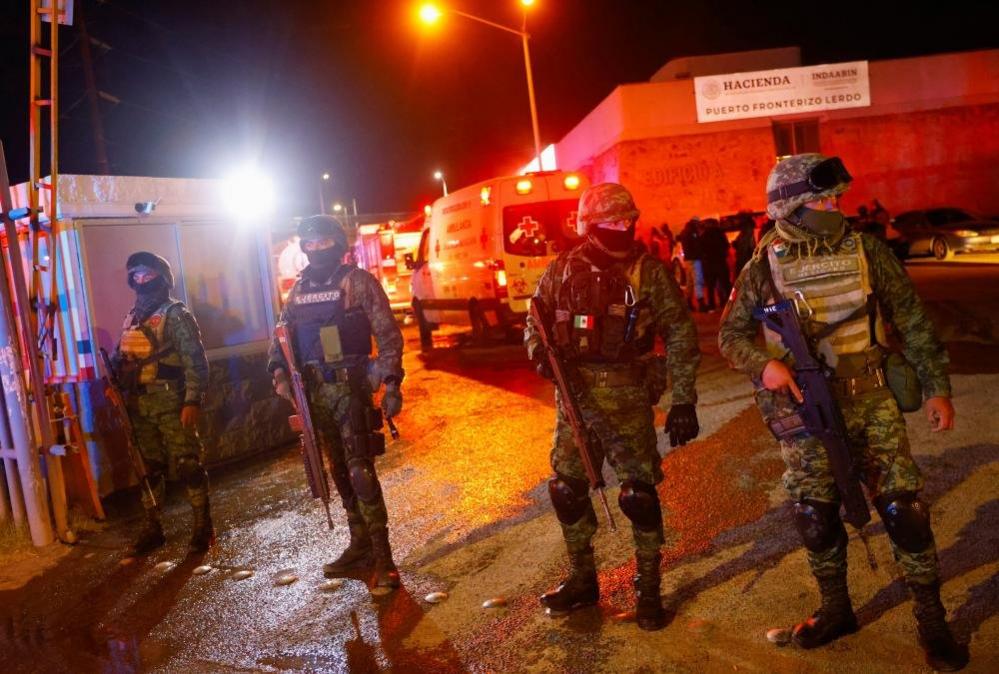
Soldiers guarded the centre after the deadly fire
Under Mexican law, anyone whose migration status is irregular can be detained. Orlando was taken to a centre run by Mexico's Migration Institute just south of the bridge on the US-Mexico border.
As well as housing offices where migrants are processed, the building also has areas where migrants are held behind a locked cell door.
It was in the men's cell where a fire broke out on Monday night, which killed 39 of the 68 migrants inside, including Orlando.
His 32-year-old sister Mileyvi says that not only was his family in total shock at the news, but also at the way they found out about her brother's death - from concerned relatives who spotted his name on the list of victims.
"No official, neither Venezuelan nor Mexican contacted us," she told the BBC from the state of Táchira in Venezuela on Friday.
Mileyvi says that when she contacted the Mexican embassy in Caracas and the Venezuelan embassy in Mexico, she was asked to provide photos of her brother to aid with the identification of his body.
She says that at the time she was also not told where the body of her brother was, or what the cause of his death was.
Nor was the family offered any psychological support, she says, after they had seen video from a surveillance camera, which shows the moment the fire broke out and which has been widely circulated on social media.
Read: Video of deadly Mexico fire causes outrage
In it, three uniformed officials can be seen walking out of the room, appearing to leave the migrants behind as the flames spread and the area quickly fills with thick smoke which obscures the camera.
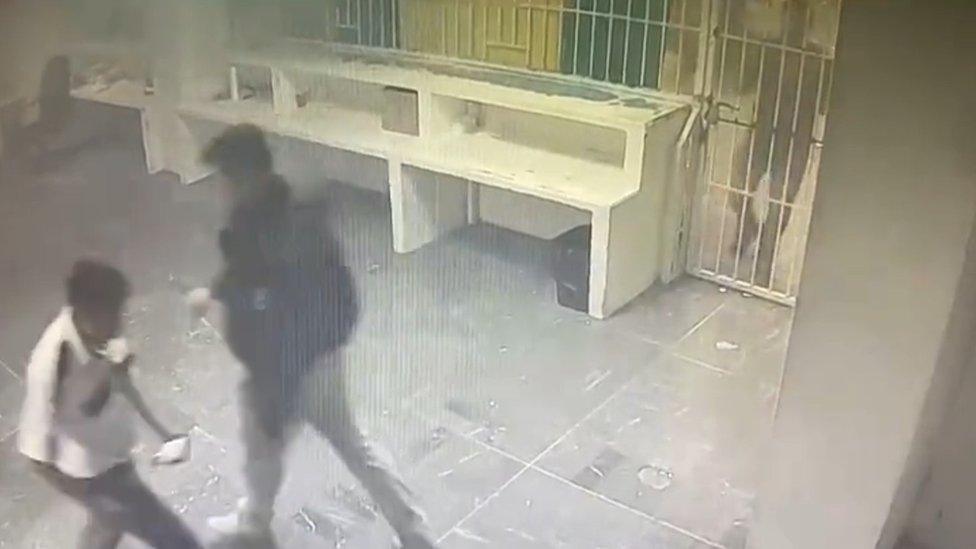
The video appears to show uniformed staff failing to open a locked door as the fire starts
The video has no sound, so it is not possible to ascertain what, if anything, was said as the blaze erupted. It is also unclear what the uniformed staff are doing when not on camera.
Mexico's President Andrés Manuel López Obrador said the fire had been started by one of the migrants as a protest "when they had learned they would be deported".
The migrant suspected of starting the fire has been arrested. Four migration officials and a private security guard accused of failing to free those behind bars have also been detained.
The Mexican president said there would be a thorough investigation and "no impunity" for those responsible.
Meanwhile, the Maldonado family is trying to come to terms with the fact that Orlando is dead.
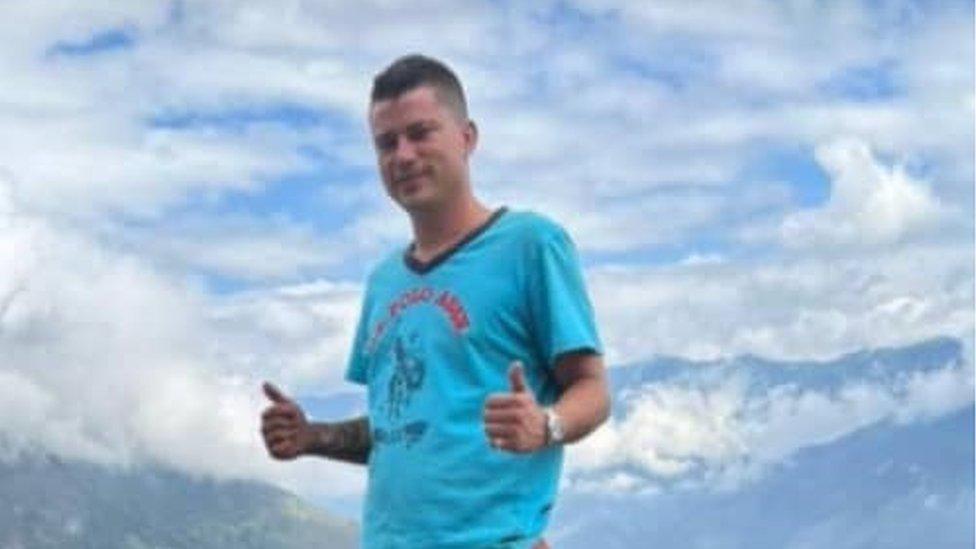
Orlando had tried to call his mother daily, to keep her informed of his trek north
With the number of fatalities provided by the Mexican authorities going up and down and up again in the days after the fire, Orlando's family at first were still hoping against hope that he could still be alive.
"I kept holding out hope that he was alive, because hope is the last thing you lose," his sister said.
After all, Orlando had survived other dangerous parts of the journey north. He had successfully crossed the thick jungle that separates Colombia and Panama, known as the Darién Gap, on foot.
Read: 'Too dehydrated to cry' - a lethal trek for migrants
Mileyvi says it was not until Friday evening - four days after the fire - that she finally received a call with official confirmation of her brother's death.
She and her parents are haunted by the surveillance footage showing the migrants trying to open the locked door of the cell.
"He was robbed of his life, he couldn't even fight for his life, he was locked up and left to die.
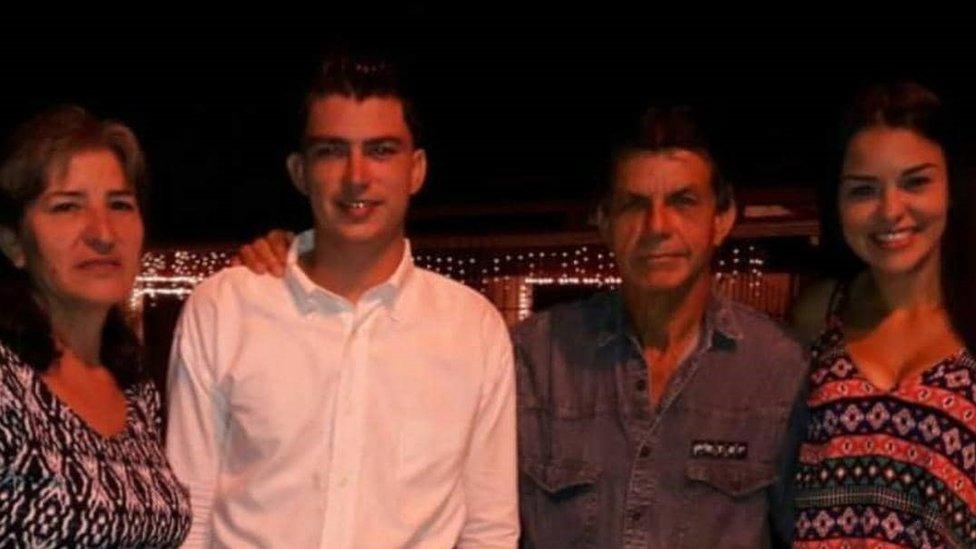
Orlando's parents and his sister Mileyvi say they are heartbroken
"He always wanted to do everything the legal way, to get permission to enter the US legally to join his older brother there, then get a work permit so he could earn and save enough to come back to Venezuela to open a car repair shop here.
"My mum is in pieces, she never thought Orlando's life would come to an end in such a cruel way, when he was so close to achieving his dream," Mileyvi says, struggling to hold back the tears.
"I want people to understand that those who died are not just numbers, they're 39 human beings who had dreams and goals. They are leaving behind parents, siblings and children, and they didn't deserve to die this way."
Related topics
- Published30 March 2023
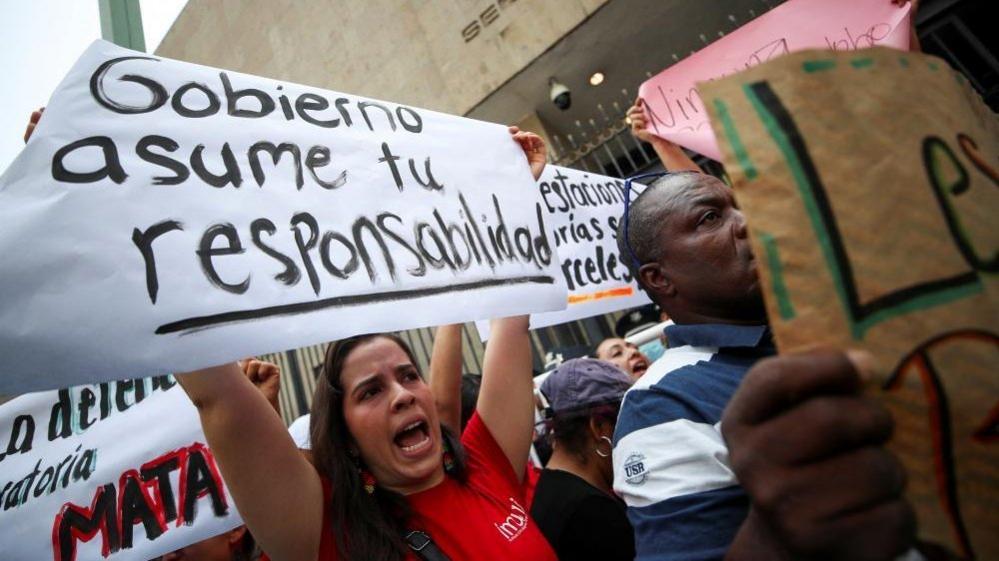
- Published29 March 2023
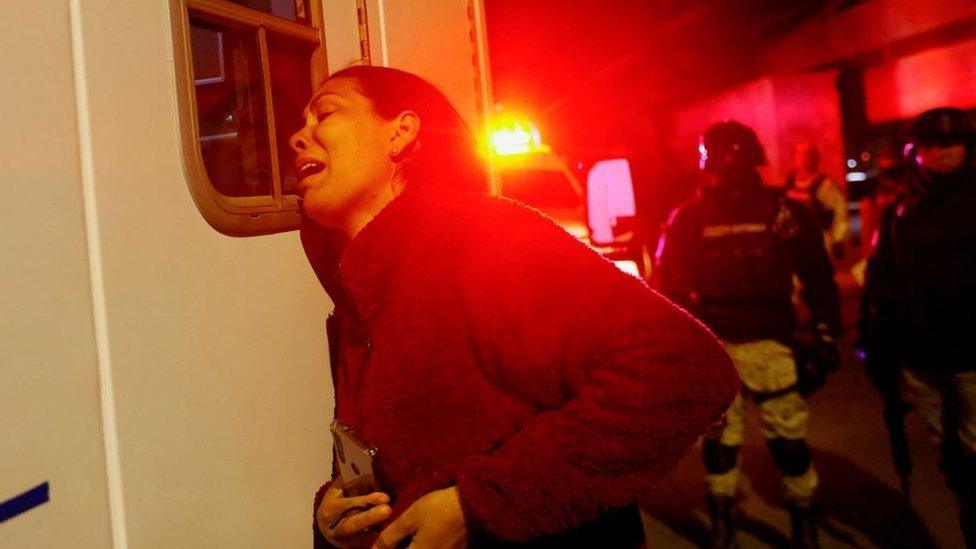
- Published17 October 2022
